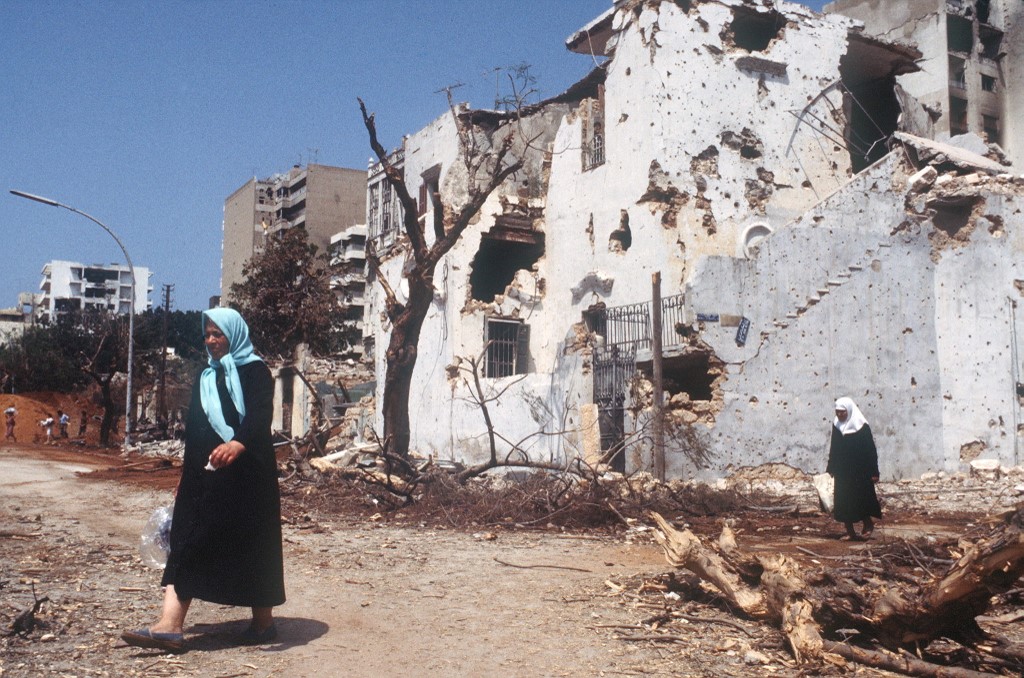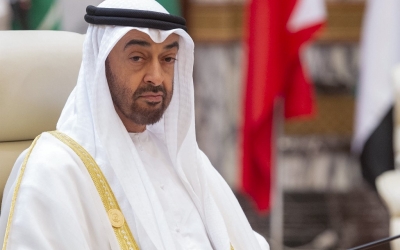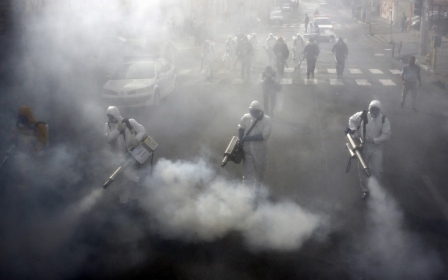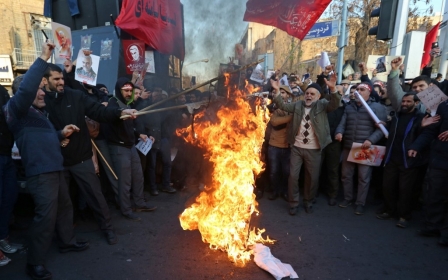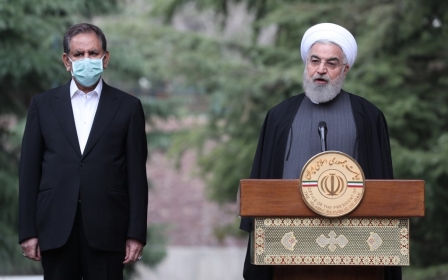Why US sanctions cannot remove Iran as a key player in the Middle East
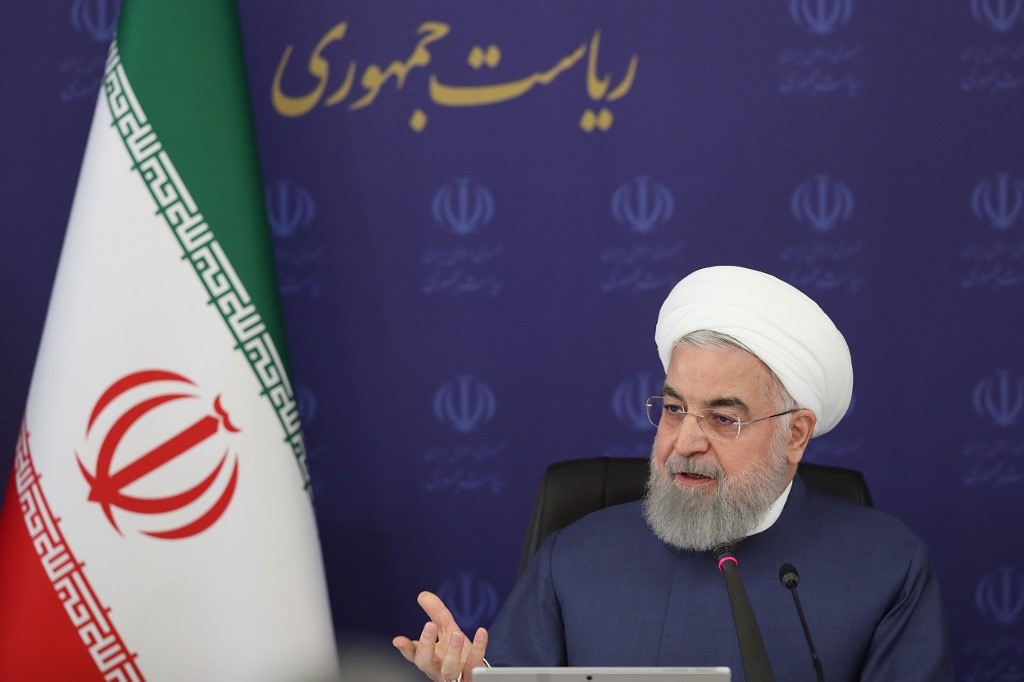
One of the stated objectives of US sanctions on Iran has been to end what Washington characterises as “nefarious” activities in the Middle East, including helping Hezbollah, Hamas, Shia militias in Iraq, and the Houthis in Yemen.
From the perspective of the US and several European states, the best way to stop such behaviour is a total change of regime in Tehran - or at least a transformation of its character and foreign policy objectives through radical reforms.
Failing that, Washington hopes that stopping Iran’s cash flow will force it to cut or drastically reduce its financial and other help to its regional allies. This, the US believes, will prompt Iran’s allies to cut their ties with Tehran, seriously eroding Iran’s regional influence.
Regional ambitions
The US also counts on the financial power of its Arab allies, especially Saudi Arabia and the UAE, who share Washington’s view of Iran’s regional role and have their own regional ambitions to lure Iran’s allies away from Tehran.
New MEE newsletter: Jerusalem Dispatch
Sign up to get the latest insights and analysis on Israel-Palestine, alongside Turkey Unpacked and other MEE newsletters
Saudi Arabia has used the draw of financial assistance to Iraq to weaken Baghdad-Tehran bonds, while the UAE is reportedly trying to distance Syrian President Bashar al-Assad from Iran by offering financial help.
But how successful is this strategy likely to be? To judge this, one must first determine the sources of Iran’s regional influence and the relative role of cash as compared with other factors.
Throughout the Middle East, Iran has played the fool, spending blood and treasure without gaining anything lasting
Clearly, money has been a key factor in extending Iran’s influence to places such as Lebanon, Syria and Iraq. There are no reliable statistics about the magnitude of Iran’s financial help to these actors.
US and Western sources tend to exaggerate the volume of this help, putting it at tens of billions of dollars, while Iranian sources tend to underreport it. According to some sources, Iran gave Syria a line of credit totalling $6.6bn since 2011, topped up with an additional $1bn in 2017.
The other conundrum is how much Iranian help has actually been in cash, and how much in the form of oil or military and other supplies. A good part of Iranian aid to its Middle Eastern allies comes in the form of the latter, plus the stationing of members of the Revolutionary Guards in places such as Syria.
Even so, over the years, Iran has spent large sums of cash on Hezbollah and Hamas. Some estimates put its annual help to Hezbollah at between $700m and $1bn and to Hamas at $100m. Some other Palestinian groups, such as Islamic Jihad, also receive help from Iran.
Mistakes of other players
In Iraq, Iran helps groups such Asaib Ahl al-Haq and Kataeb Hezbollah, as well as the government, through the supply of energy, including natural gas. Even before the US sanctions, Iraq was not paying for these supplies. Iranian Oil Minister Bijan Namdar Zangeneh complained that Iraq was buying Iranian gas but not paying. In Yemen, Iran’s help to the Houthis has been mostly military.
Other factors, including sectarian and ideological affinities, local conditions, and policy mistakes of other players have also helped Iran to increase its regional influence.
In Lebanon, the history of discrimination against Shia Muslims, plus centuries-old ties between Iran’s Shia establishment and that of Lebanon, have contributed to Iran’s influence.
The sectarian policies of actors such as Saudi Arabia have also benefitted Iran. The 1982 Israeli invasion of Lebanon enabled Iran to establish a foothold there and to help develop Hezbollah into a significant force. Even so, until the withdrawal of Syrian troops from Lebanon in 2005, Damascus, not Tehran, was the main influencer in Lebanon.
In Iraq, Iran has been helped by sectarian and ethnic bonds; many Iraqis are of Iranian origin or have mixed parenthood. The Shia history of past persecution, Iran’s help to them during Saddam Hussein’s rule, the hostile reaction of Sunni Arab states to the emergence of a Shia-majority government after the 2003 US invasion, and Iran’s help in subduing the Islamic State group have enhanced Tehran’s influence. In other words, Iran has benefitted from others’ mistakes.
Geopolitical loneliness
In Syria, Western and Arab insistence on Assad’s immediate departure, and their unwillingness to consider a UN proposal for a step-by-step process of ending hostilities and implementing political reform, opened the way for Iran to expand its influence. Attacks by religious extremists on Shia shrines enabled Iran to send volunteers from several Shia-majority countries to prop up Assad’s regime.
Still, Iran’s influence, including in Lebanon and Iraq, is limited. Despite Western and Arab claims, and ill-considered boasts by some Iranian officials, Iraq has not been Tehran’s puppet.
All post-2003 Iraqi governments have refused to reinstate the 1975 Algiers Agreement on the division of Shatt al-Arab, and have not been forthcoming on many other issues, such as building a railway from Iran to Basra. Only last year they agreed to resume the Algiers Agreement. Iraq has also used Iran to bargain with the West and Arab states.
In Syria, the Assads, father and son, have also used Iran. Hafez al-Assad used Iran to contain Saddam Hussein, balance Egypt, and get Iranian free oil. But Syria never changed its basic policies to please Iran; in the 1990s, Hafez rebuffed Tehran by going to the Madrid Conference on Middle East peace. Had Bashar al-Assad reclaimed the Golan and received more money and recognition from the West, he would have abandoned Iran. It was geopolitical loneliness that pushed Bashar towards Tehran.
In Yemen, the 2015 Saudi invasion enhanced Iran’s presence.
Throughout the Middle East, Iran has played the fool, spending blood and treasure without gaining anything lasting. In Syria, it has lost ground to Russia and even Turkey in places such as Idlib. In Iraq, its presence has become more precarious.
While money has temporarily helped to increase Iran’s regional influence, sectarian and ideological affinities, unresolved conflicts and other players’ mistakes have been equally important. Thus, while economic sanctions could reduce Iran’s influence, they cannot eliminate it as a key player in the Middle East.
The views expressed in this article belong to the author and do not necessarily reflect the editorial policy of Middle East Eye.
Middle East Eye delivers independent and unrivalled coverage and analysis of the Middle East, North Africa and beyond. To learn more about republishing this content and the associated fees, please fill out this form. More about MEE can be found here.



